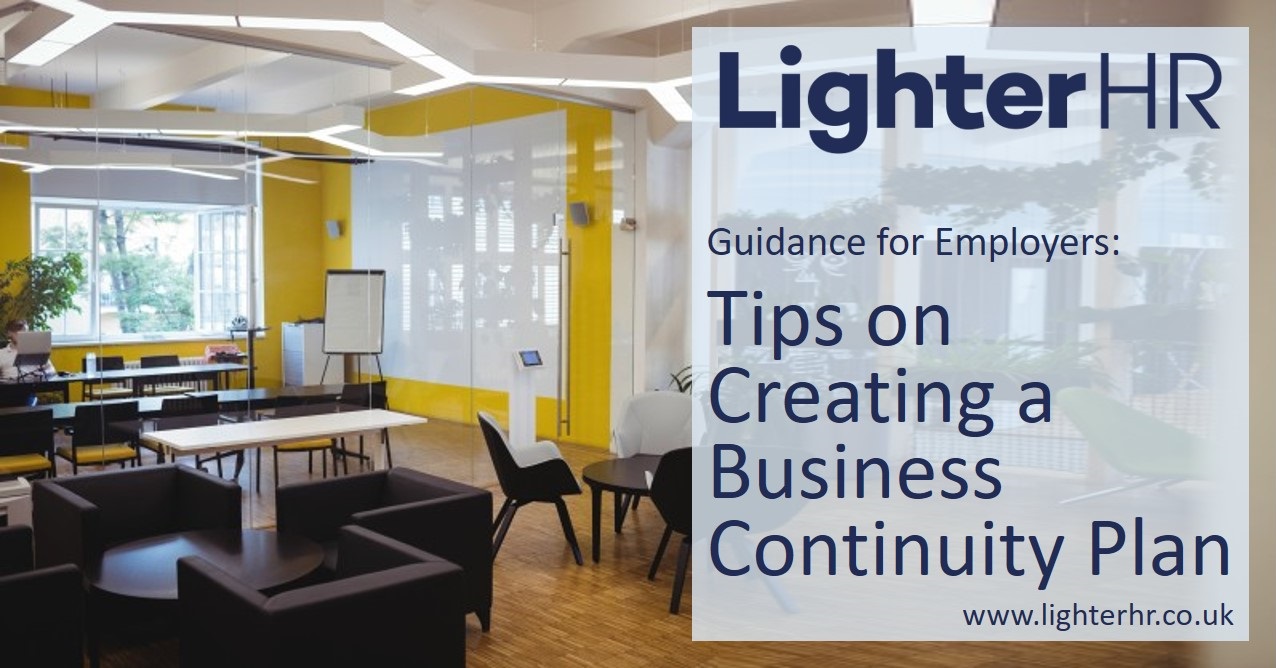Putting together a Business Continuity Plan is something that many businesses put off. It feels like a low priority and spending time planning for things which you hope will never happen can seem like a luxury.
However, in the current climate, it is worth considering whether you have plans to deal with an incident, or whether your HR policies need updating. This may feel irrelevant if you are not in a major town or city, but all businesses are at risk of unexpected occurrences whether that is being caught up in a major incident, or impacted by transport disruption, computer virus attack, power failure, fire, or flood.
Some prior thought and simple processes can reduce confusion and significant business interruption should the worst happen. Even if your business is not directly affected by an incident, proximity to one may cause major disruption to your business.
What should a Business Continuity Plan cover?
We understand that small businesses may not need complicated Business Continuity Plans (and if you feel you might then we recommend you contact a specialist in Business Continuity), but a few questions to ask may be:
- Who will take charge in the event of a business interruption?
- Do you have the technology for employees to work from home, or out of their nearest wifi enabled public environment, such as a library or coffee shop?
- If not, where would they work if your premises were inaccessible and how long would this be sustainable?
- Do you have stand alone or fixed PCs?
- If so, what would happen if your employees could not access their files?
- Do you have appropriate IT back up in the event of PC failure or virus attack?
- How will you communicate with clients and customers to keep them informed during a business interruption?
- Do you rely on paper records?
- If so, which key documents should you consider creating electronic or paper back-ups for?
- Should some documents be duplicated off-site?
- Where do you hold key information such as insurer’s details?
- Do you have name, address, next of kin details and home and personal mobile numbers for your employees?
- Could you access this information in the event you could not enter your premises or had to contact employees out of hours?
- Do you always know where your employees are during working hours?
- If you have employees who move between sites, would you be able to account for them all in the event of an major incident?
- If not, should you introduce a simple procedure for what they must do to mark themselves as safe?
- Do your employees know what to do if they are caught up in a terrorist incident?
- The government have produced useful guidance to help with this – Government guidance.
- Do you have access to counselling services to support employees caught up in an incident?
If you are not sure about any of the above, then we recommend taking some time out to think about it. Hopefully you’ll never need your Business Continuity Plan, but in the event of an incident you’ll be pleased you made it.
If you would like to discuss your plans and practicalities with one of our team, then please call us on 0203 319 1649.
Get In Touch

Speak with an HR Expert
Chat through your HR requirements with one of our expert consultants to understand the actions you can take and how we can help.


